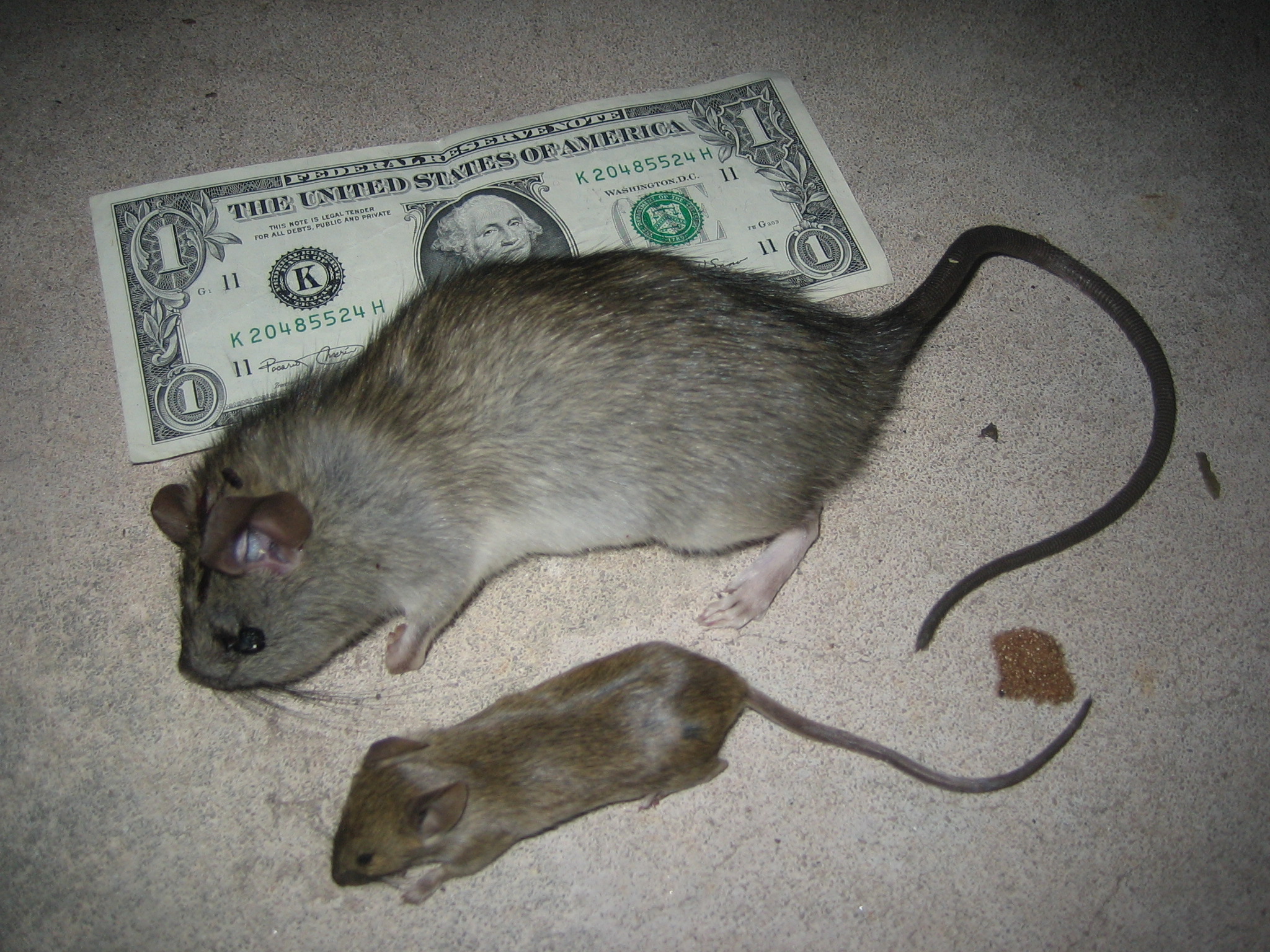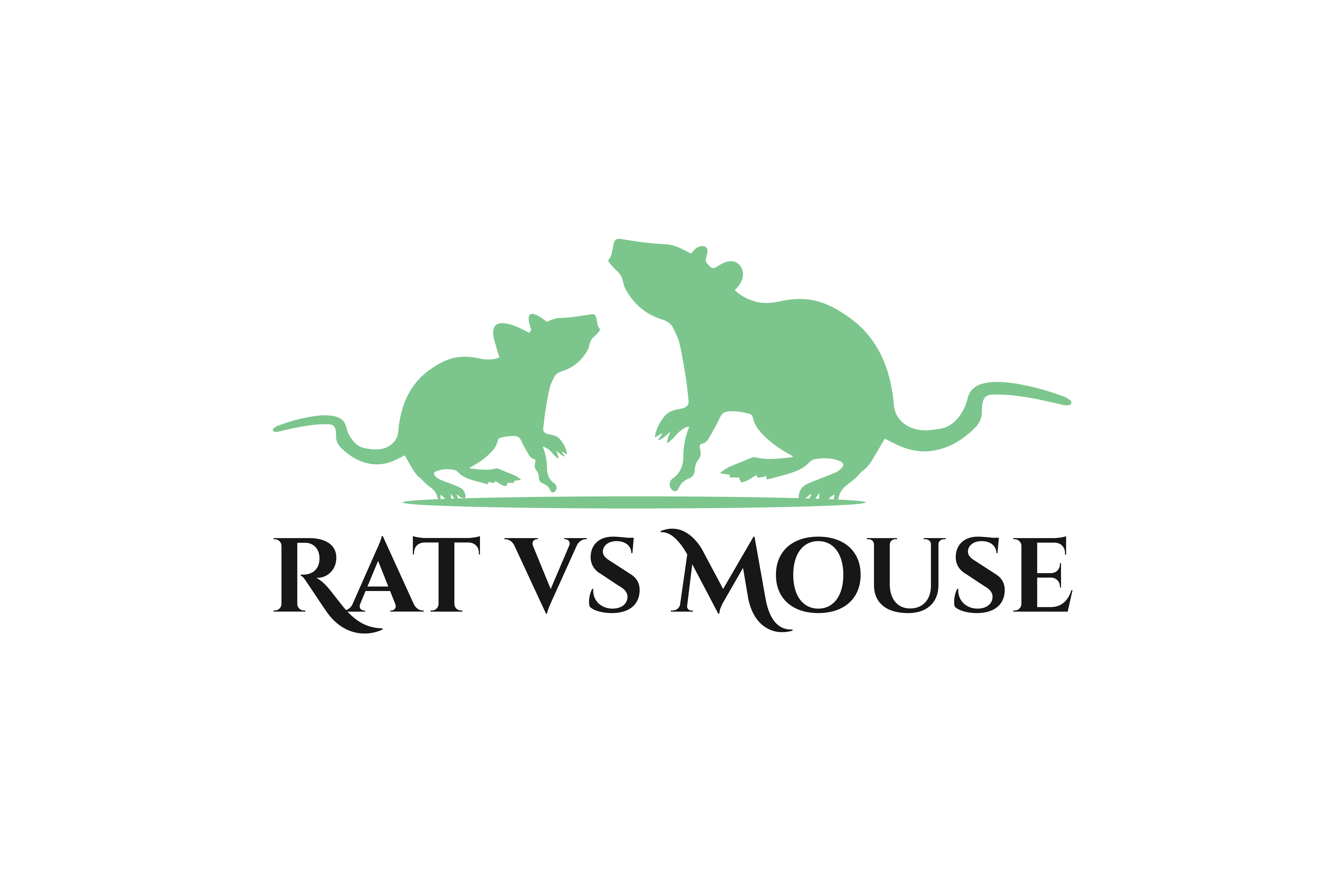
Both rats and mice are rodents that are known to be a nuisance in any home. Not only do they cause tremendous damage, they are also carriers of disease. These rodents have evolved to live amongst humans and are found in both urban and rural areas. Although they are small, they are quite smart when it comes to finding their way into buildings to find food or shelter. There are obvious differences between both these rodents that most of us fail to notice as we just see them as creatures that cause great nuisance to us. Have any of us considered which of them is smarter? They are both capable of causing the same amount of damage, but their intelligence is debatable.
Differences Between Mice And Rats
There are two types of common rats, the brown rat (Norway Rat) and the black rat (Roof Rat). Mice are typically found as the common house mouse, but sometimes field mice can be found as well.
Here’s a comparison chart with the differences between mice and rats:
Rat
- $weighs about 300g
- $usually found in urban areas
- $found indoors, outdoors, and in sewers
- $omnivorous
- $eats up to 30g food per day
Mouse
- $weighs about 15g
- $found in both urban and rural areas
- $found indoors and outdoors; never sewers
- $omnivorous
- $eats up to 3g food per day
There are other differences between these rodents, including physical characteristics, which make them two completely distinct animals.

Rat vs. Mice Intelligence
Both rats and mice are intelligent rodents. They are able to enter into our homes and cause more damage than we realize. However, what many of us do not know is that rats are smarter than mice. Simply by looking at a rat, you can see they are intelligent as they solve problems and find other ways to cause more mischief. Below are a few reasons as to why rats are smarter than mice.
Rats are Quick Learners
- Unlike mice, rats have the ability to pick up behaviors and tricks very quickly.
- Like humans, rats are survivors. They learn to cope with what nature has in store for them, including learning to raid human food stores without being caught.
- Rats can be trained to press a button for food. They can also learn to turn a light on and off, and will start doing it on their own, as they themselves like the change.
- Rats have an amazing sense of smell and hearing, and can be trained to sniff out land mines and bombs in place of dogs.
Mazes
Rats are also very good at mazes, especially if there is a treat somewhere, as they have a good sense of smell (unlike mice). Although rats might take a while to find the treat at first, they get better at it each time. Rats are able to use visual markers to construct a picture of the maze in its mind. It can remember which path it already took in the maze, as well as note what areas of the maze have light and which do not. Studies done have shown that rats are intelligent in this way, and that they were able to find food in tunnels with minimum effort.

Social Intelligence of Rats
Rats can be very social creatures, unlike mice. When trained, they can build very complex relationships with humans. It is difficult to do the same with mice, as they are very scared creatures, although a few people who keep mice as pets have shown that mice can sometimes respond to your actions. However, rats are able to create a stronger bond with people. Relationships are very important to rats. In the wild and in labs, rats have been known to die due to social stress. There have also been reports of rats dying from heartbreak after their partner has died.
Rats also display different personalities. Some are more confident and outgoing, while others are shy. It is said that with the shy ones, one has to be a bit more patient and gentle with them before they slowly begin to respond to you.
Most of us have always seen rats and mice as the same thing, but the above facts establish clear differences between the two. Rats are smarter in many ways, which also explains why they sometimes can avoid traps (unlike the common house mouse).
